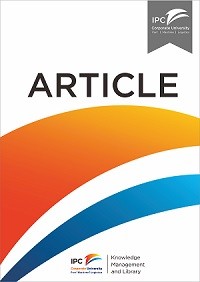Article
Free trade agreements and maritime supply chain costs : competitiveness of Korean firms
In turbulent competitive environments, firms increasingly utilize global supply chain (GSC) management to expand their resource base and integrate diverse network capabilities to capture larger segments of global market. As various entry restrictions are applied in the diverse market components, free trade agreements (FTAs) between countries or regional blocs provide added competitive advantages to global firms. Yet, little research is available on how firms implement their GSC strategies and utilize maritime supply chain costs in the context of FTAs. The aim of this article is to examine how Korean firms apply their GSC management practices from a competitiveness perspective. Specific research contents are: (i) What types of FTAs does Korean government have with different nations? (ii) What are the specific impacts of these FTAs on the implementation of GSC management and the determination of maritime supply chain costs of Korean firms? The article provides essential details of several FTAs that have been completed since 2000. A research model explains the relationships (i) between FTAs and GSC strategies (ii) maritime supply chain costs and business impact results. Case illustrations highlight how Korean firms apply the potential benefits of multi-FTAs for achieving their GSC management strategic priorities and goals. Lessons and implications are discussed.
Ketersediaan
Informasi Detail
- Judul Seri
-
-
- No. Panggil
-
ATC MR PAR f
- Penerbit
- Tokyo : Macmillan Publishers Ltd., 2016
- Deskripsi Fisik
-
16 p.
- Bahasa
-
English
- ISBN/ISSN
-
-
- Klasifikasi
-
MR
- Tipe Isi
-
-
- Tipe Media
-
-
- Tipe Pembawa
-
online resource
- Edisi
-
-
- Subjek
- Info Detail Spesifik
-
-
- Pernyataan Tanggungjawab
-
Youngwon Park
Versi lain/terkait
Lampiran Berkas
Komentar
Anda harus masuk sebelum memberikan komentar

 Karya Umum
Karya Umum  Filsafat
Filsafat  Agama
Agama  Ilmu-ilmu Sosial
Ilmu-ilmu Sosial  Bahasa
Bahasa  Ilmu-ilmu Murni
Ilmu-ilmu Murni  Ilmu-ilmu Terapan
Ilmu-ilmu Terapan  Kesenian, Hiburan, dan Olahraga
Kesenian, Hiburan, dan Olahraga  Kesusastraan
Kesusastraan  Geografi dan Sejarah
Geografi dan Sejarah